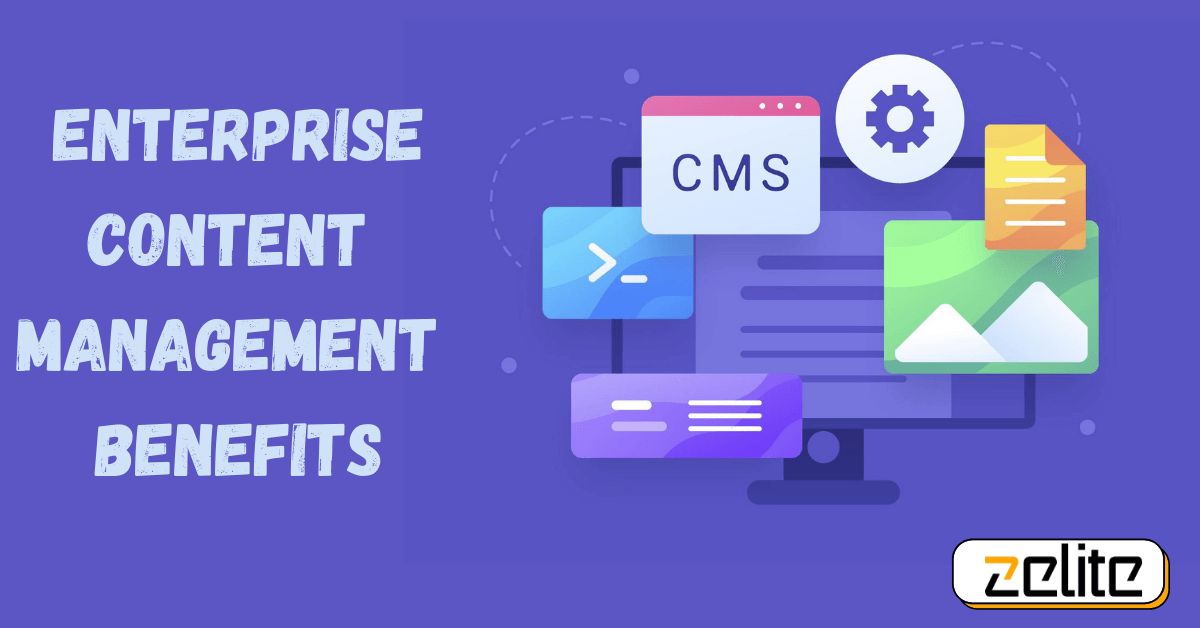Is your company facing challenges while managing a large number of papers and unstructured information? If yes, then your company needs a strategic enterprise content management (ECM) solution. So let us see what ECM is. Enterprise Content Management (ECM) is a system solution designed to manage an organization’s documents efficiently. ECM enables organizations to store and access unstructured information such as word documents, PDFs, Excel spreadsheets and scanned image files. Additionally, these documents can be accessed by the right people and at the right time.
ECM Solutions improve business process efficiency through the elimination of paper documents and the organization of documents according to business needs. Healthcare, manufacturing, education, insurance, banking, finance, mortgage and other industries use ECM solutions to better manage their businesses.
The cost of implementing ECM is quite heavy for a business. Hence, before making a purchase, ECM Benefits should be evaluated.
Enterprise Content Management System Benefits
1. ECM provides Storage Repository for Business Documents
Different kinds of business documents such as business plans and records, transaction documents, reports, documents in respect of agreements, employment contracts, invoices, vendor documents, financial and customer data etc are involved in organizations business processes. These documents may consist of a large number of pages combining text with images.
ECM provides a storage repository to maintain these valuable business documents. Inside the storage repository, documents are categorized based on organization framework and business plan. Documents are tagged with different types of metadata based on various criteria and conditions.
Most importantly, ECM establishes the authoritative document collection for the organization as a whole. Other people and processes simply need to access the items sourced from this authoritative repository to ensure that they are using approved versions.
2. ECM makes Content Easy to Find and Retrieve
People with different kinds of roles and stakeholders are involved in a business. They are subjected to different kinds of documents as a part of the business process. For example, a marketing person may want to have a look at previous marketing plans before creating a new one. A software designer might want to review current market requirements and customer complaints before recommending enhancements to a current product. These knowledge workers spend a substantial amount of time and effort searching for information and then acting on the results.
Using an ECM, content can be easily found, which allows knowledge workers to save time searching for information. The basic search is based on keyword matching — finding files in a repository that match predefined character strings and displaying a list of results.
3. ECM Solution Saves Time
It takes more time to keep track of more information. It is virtually impossible to analyze your data effectively if it isn’t organized well. Thus, it makes sense to let an ECM solution take over to help streamline the process. By using an ECM solution, you can organize your documents efficiently, making them easier to find and, therefore, saving time. You can increase productivity when you reallocate your time to more critical tasks.
4. ECM reduces Operation Cost
Several companies are saving money by doing business digitally, and an ECM solution is one efficient way to do this. ECM solutions can streamline organizational procedures, enabling your organization to reduce costs. You’ll be able to drastically reduce your paper consumption. You will soon realise the financial benefits resulting from reduced printing and shipping costs. By using less paper, you may even free up more office space! It will also benefit your employees when the resources are reallocated to more valuable tasks.
5. ECM provides Content Security
Accessing digital files online involves inherent risks. To ensure content security, organizations need mechanisms. Documents, images, and other digital artifacts should only be created, updated, and deleted by authorized individuals. In addition, administrators need to track the flow of information to find out how their collections are doing digitally.
ECMs enforce security policies while assessing documents and maintaining a record of all activities. The solution will also handle reporting and auditing of the information that you may already have or need. One can relieve himself of the stress associated with retention periods because ECM solutions can automate retention periods and records management.
Integrating an ECM system ensures that people and processes seeking access to a repository are who they say they are. Once users are authorized, ECM manages access controls to individual files and/or folders, determining who can create, read, update, or delete various files. Every interaction with the ECM gets recorded, allowing administrators to monitor and verify content flows.
6. ECM Improves Customer Service Experience and Quality
With ECM, you get instant access to documents. Therefore, you can see the status of requests and transactions in real-time. As a result, you can respond to the needs of your clients faster than ever before. Having access to online forms and requests will be appealing to your customers. The extra time you will have with your ECM solution can also be invested in providing your customers with the seamless experience and quality service they deserve.


